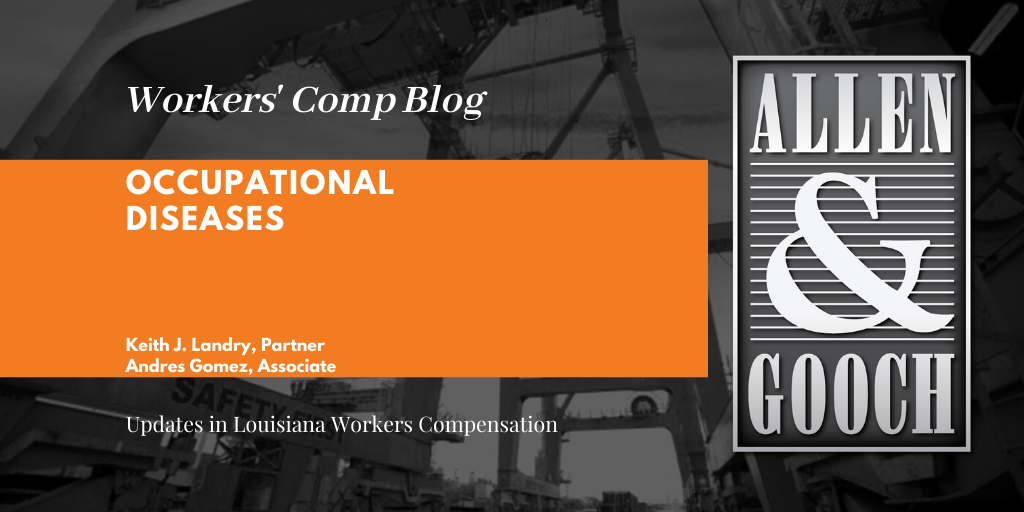Occupational diseases are those that manifest as a result the regular course and scope of employment. Specifically, La. R.S. 23:1031.1 defines an occupational disease as:
- An occupational disease means only that disease or illness which is due to causes and conditions characteristic of and peculiar to the particular trade, occupation, process, or employment in which the employee is exposed to such disease. Occupational disease shall include injuries due to work-related carpal tunnel syndrome.
Accordingly, the claimant has the burden of proving that the alleged occupational disease is due to the conditions and characteristics of their specific trade or occupation. The legislature contemplated that occupational diseases do not simply appear. Rather, an occupational disease takes time to develop. When an occupational disease appears less than twelve months from the date of engagement with the employer, it is presumed that the occupational disease is not contracted while in course and scope of that employer.
By way of manifestation, occupational diseases are significantly different than what one would consider the typical workers’ compensation claim that involves the allegation of an accident and an injury. This fundamental difference leads to issues that are continuously evolving.
Recently, the Tower v. ConocoPhillips case brought one of these issues to the forefront. The Tower case dealt with the matter of when an occupational hearing loss claim prescribed when considered an occupational disease. Occupational diseases prescribe if filed more than one year after three elements are met. First, the disease must manifest itself, second, the claimant must be disabled from working as a result of the disease, and finally, the claimant knew or should have known that the disease was occupationally related.
The Tower case tackled the difficult issue of determining when an occupational hearing loss claim prescribed for a claimant that had been retired for nearly a decade. ConocoPhillips presented the argument that the claim prescribed when the claimant retired. Ultimately, the appellate court decided that, in that case, prescription did not begin to run until a physician determined that the claimant was disabled and, consequently, unable to work. Specifically, the court stated that existence of a disability begins from the date in which it is clear that employee is no longer able to perform duties of his employment in such a way that it is satisfactory.
The issues surrounding occupational disease claims that related to hearing loss are likely to continue to develop. Specifically, the issue of prescription will likely continue to be challenged.
Allen & Gooch is providing this legal update for informational purposes only. This article should not be construed as legal advice or a legal opinion as to any specific facts or circumstances. You should consult your own attorney concerning your particular situation and any specific legal questions you may have.


